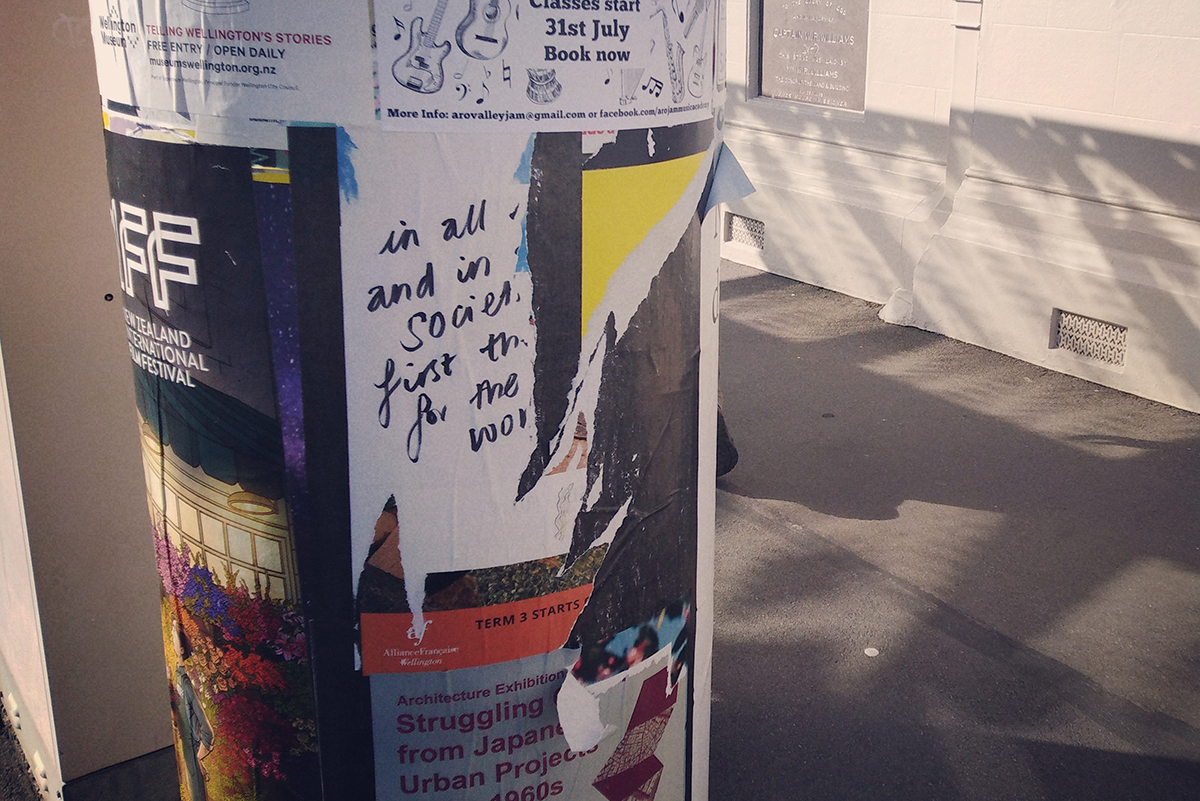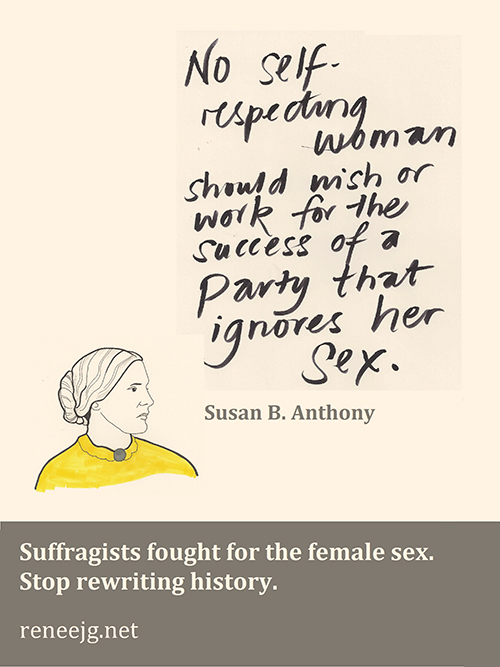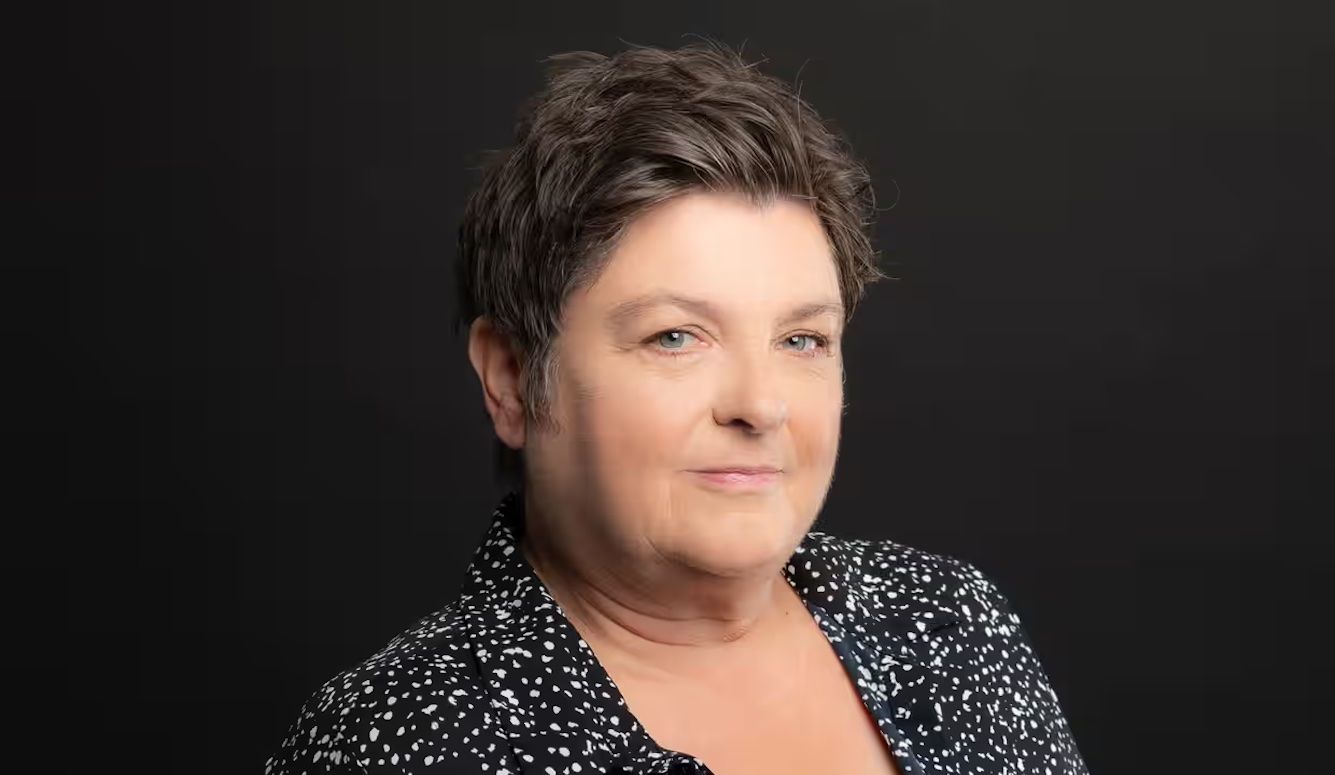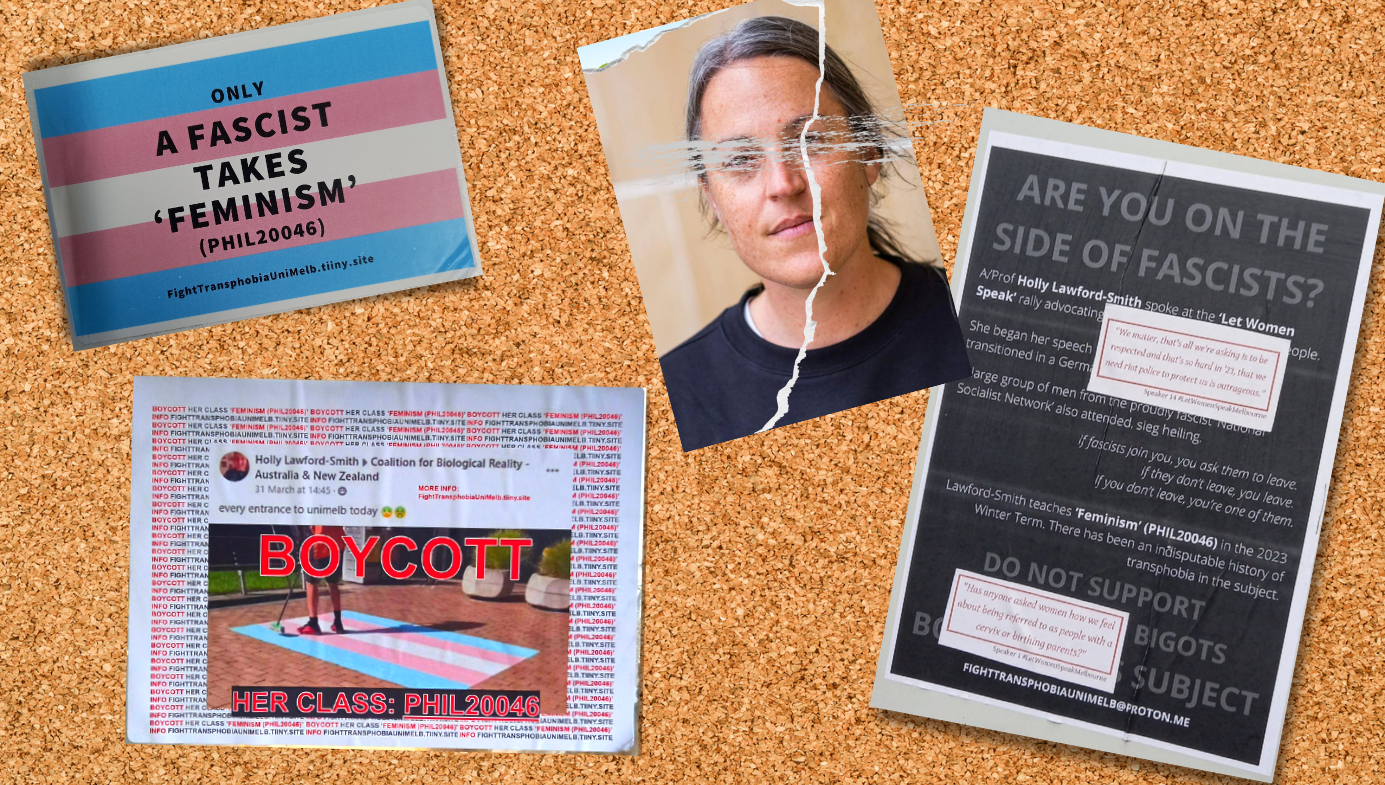Art and Culture
Suffragists Fought for the Female Sex
The response to my posters shows that the phrase ‘female sex’ is on its way to being classified as ‘hate speech.’

It is not so much the cause of feminism to provide a shining walkway for a female leader, as… to arrive at a governance that takes issues that affect women seriously. ~Rae Story
In the quote above, writer and activist Rae Story offers a stark warning of the dangers of tokenism and co-optation in an era where ‘feminism’ has become part of many a politician’s personal brand. Story’s statement also functions as a timely reminder of the suffragists’ objective: governance that takes women’s issues seriously. This is why I included the quote in a recent poster campaign I started in Wellington, New Zealand as a way to be heard in the current climate that has become increasingly hostile and repressive towards women’s views.
I created three posters: one featured Story, another featured Iranian activist Masih Alinejad stating, “In all religions and in all societies, first they come for the women.” A third featured local feminist Chelsea Geddes asking, “If you think women are wrong, how do you know the only way to win the argument is to silence them?”

Ironically, publishing these quotes about silencing women would lead me to once again be blacklisted for promoting women’s issues. I had hired Phantom Billstickers, a nationwide postering company, to display the posters through the streets of Wellington and for two weeks I happily spotted them on pillars and buildings around the city. This month marks 125 years since women won the vote in New Zealand, so to simultaneously promote current women’s issues and pay tribute to this important anniversary, I sent them another set of homemade posters specifically commemorating women’s suffrage.
Rather than accepting my order as normal, the postering company phoned to interrogate me about what sort of dangerous figure I was, why my posters had been torn and if I could explain my politics to them in light of the complaints they received alleging that I was transphobic. They told me they were nervous about taking my order and in the end, refused to handle it.
When trans activist organisations InsideOut and RainbowYouth—who also ensured that I was banned from the Wellington Zinefest in 2016—were asked for comment, they claimed that my posters communicated “a subtle transphobia.” This ‘transphobia’ was found in the slogan “The suffragists fought for the female sex.” To be absolutely clear here the words they found objectionable, and which led a company to blacklist me, were “the female sex.”

In today’s repressive climate, it is fast becoming blasphemous for a woman such as myself to even infer a connection between ‘femaleness’ and ‘sex,’ since trans activists now insist that femaleness must be viewed as an internal ‘essence,’ not a biological fact. To break from their orthodoxy is to risk being attacked, even if you are simply referencing historical acts of suffrage that occurred over 125 years ago.
The response to my posters shows that the phrase ‘female sex’ is on its way to being classified as ‘hate speech.’ Indeed, when prime minister Jacinda Ardern recently gave birth, liberal commentators like Robbie Nicol boasted their refusal to acknowledge the baby’s sex or even that she has one, to signal their approval of these “progressive” trends.

Back in July, I also appeared in a television Q&A segment just long enough to state: “The suffragists fought for the vote so that women could make political demands that pertain to our sex. We can’t do that if the definition of what a woman is, is fundamentally changed.” As a result of that statement, New Zealand’s National Council for Women sent out an urgent press releasecontradicting my claim that the suffragists fought for women as a ‘sex.’ Following that, Archives New Zealand issued a statement titled “The definition of a woman in 1893,” which included the following lines:
…in the late 19th century and early 20th century there were cases of men and women being arrested under the vague Police Offences Act 1884… often for wearing clothes ‘not of their sex.’ Sometimes they were deemed to be committing fraud because they were ‘deceiving’ people by not dressing in the appropriate clothes such as Amy Bock who married a woman while ‘disguised’ as a man. At the time it was not considered whether these people may have been transgender.
This passage refers to the feminists who fought for dress reform because wearing pants while female was considered transgressive. Since lesbianism was also certainly seen this way, lesbians were forced to pass as heterosexual to avoid persecution. To now rewrite history and point to Amy Bock, for example, as a woman who may have actually been a ‘trans man’ is not an act of liberation, but an insult suggesting that women who do not conform to feminine norms are not ‘real’ women. This reinterpretation of history simply replicates the tired old essentialism that first wave feminists battled against in the first place. The historical fictionalization of iconic suffragists also renders lesbians heterosexual through a kind of retroactive conversion therapy. This revival of Victorian essentialism, along with its notions that women’s non-conformity might symptomize innate ‘maleness’ or deviance, will not empower lesbians but instead force many of them back into hiding.
In the same week that the Sunday Star Times reported the story of Phantom Billstickers refusing my posters, the Lesbian Rights Alliance Aotearoa(LRAA) was formally established as a collective of largely anonymous women. The LRAA’s first press release challenged government proposals to implement one-step sex-self identification in New Zealand, which would, with no questions asked, allow men to change the sex markers on their birth certificates at their own discretion. As an example of where this absurd policy can lead, this summer a Canadian man changed his own gender simply to get cheaper car insurance. But the real concern is of course the rollback of women’s rights, and how this license to change sex markers on key identification papers will compromise female-only spaces and women’s safety. The LRAA introduced themselves in powerful and unapologetic terms: “It’s 125 years since Meri Te Tai Mangakāhia, Kate Sheppard and thousands of other women fought for women’s rights on the basis of sex. We are continuing their legacy.”
The coverage of my poster fiasco and the announcement of a lesbian collective with clearly stated goals of women’s advocacy proved too much feminist action for a New Zealand week, so government representatives weighed in. At least seven members of parliament issued statements. Labour MP Louisa Wall issued a direct statement in response to the formation of the LRAA, in which she called the organization “ugly and intolerable.” Then Green Party co-leader Marama Davidson wrote on Twitter “Trans women are women. The men who are threats to women’s spaces, are men. Trans women who are so acutely oppressed, marginalised and dehumanised—are my sisters. Not my enemies.”
It is cringingly clear that these statements, like the rewriting of suffrage history, are nothing but concessions of a weak position that furthermore undermine each leader’s claims to respect minority groups. What’s more, we all know too that it is possible even for a minority of one to wield power simply by speaking the truth. Indeed I can think of no other reason why government representatives would target a newly formed lesbian collective, unless that lesbian collective had truth on its side. As a newly minted collective the LRAA certainly boasts no other form of power.

For my own part, the backlash I have endured comes after a mere three years of activism, but in that time I’ve been the target of an online bullying pact that helped drive me out of my job and city; I’ve been banned from a zine fair, had articles surreptitiously censored, an interview ‘lost,’ had a radio presenter who scheduled me for an interview receive a warning from his station manager for doing so, and of course I’ve had my posters ripped down and been told by a poster company that they cannot accept my latest work commemorating suffragists.
Even blogger Martyn Bradbury has noted, “The way Woke Twitter hate Renee Gerlich is something to behold—I’ve never seen such hatred from any other faction in politics.” To vocalize specific concerns women have with regards to gender identity, one-step self identification laws, and the acknowledgement of historic feminist struggles is all it takes to get women hated.
This hatred leaves me careful where I walk at night, where I might stop for coffee in the daytime, and often makes me wonder what will happen when law enforcement starts to operate more closely in line with the misogynist redefinitions of hate speech. If the phrase ‘female sex’ is already enough to warrant silencing, where will we be in five years? Ten? There are moments I feel that it doesn’t bear thinking about, but it definitely seems that history is repeating.
Because of these obstacles, I am certainly glad that I have read the work of suffragists—like Susan Anthony who warned that “no self respecting woman should wish or work for the success of a party that ignores her sex”—an assertion I know beyond a doubt, like Rae Story does, that Anthony’s peers would not have rolled over to simply glorify a female leader. I know that the suffragists fought for systemic change that would see women’s issues taken seriously. I know the motivation and stamina with which British suffragist Emmeline Pankhurst fought everything the Liberal government of her own day threw at her and her sisters, too. That strength and resilience is worth remembering, because remembering this, after all, will keep us going.






